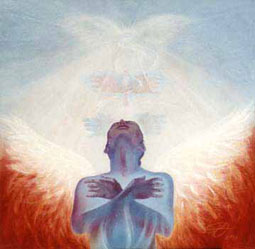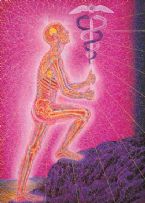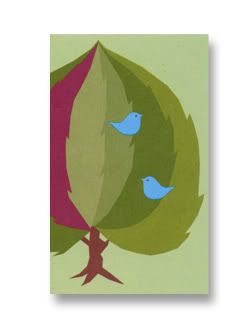 Mundaka Upanishad has always been considered as a treasure of knowledge. I present here, the following invocation stanza from Mundaka Upanishad that I feel is very significant, profound and beautiful and which represents the entire nectar of this upanishad.
Mundaka Upanishad has always been considered as a treasure of knowledge. I present here, the following invocation stanza from Mundaka Upanishad that I feel is very significant, profound and beautiful and which represents the entire nectar of this upanishad."May we hear the auspicous things
The master told the Prince, " My dear Prince, Just go and wander around the forest and come to me after one year and then, answer the question, "What is the sound of the forest all about?"
The prince wanders around the forest hearing all sorts of sounds and wondering why he has been asked such a simple question. Exactly after one year, the Prince goes to the hermitage and tells the master, " Master, here is the answer. The sound of the forest is the chirping of the birds, roaring of the elephats and the lions, buzzing of the beetles, creaking of the trees, rustling of dry leaves, splashing of the water falls and so on."
The master says, " My dear prince, you have not found it. Wander around for another year and tell me the sound of the forest. Confused, the prince wanders around the forest, hearing exactly the same set of sounds he had heard the previous year. One year passed and the prinns to the returns to the hermitage and answers the master with the same set of sounds. The master again, asked the prince wander for another year to find the sound of the forest.
The prince started to wander again. The Prince thought that, as long as I keep hearing the same things and tell the same answer, I am just going to wandering around this forest all my life and hence, I should hear something new. One day, tired and exhausted, he lay down on a bed of grass below a tree and went into a state of complete relaxation. His mind was placid, the body was relaxed, eyes closed and was almost in a sleepy, but conscious. Suddenly, he hears the sound of a seed sprouting into a small plant, the sound of a bud blossoming into a flower, the sound a spider projecting and sucking its threads, the sound of a honeybee sucking nectar from a flower and a lot more unheard sounds.
1. In order to be a leader, it is essential to hear the unheard voices and to listen to the heart of your people.




